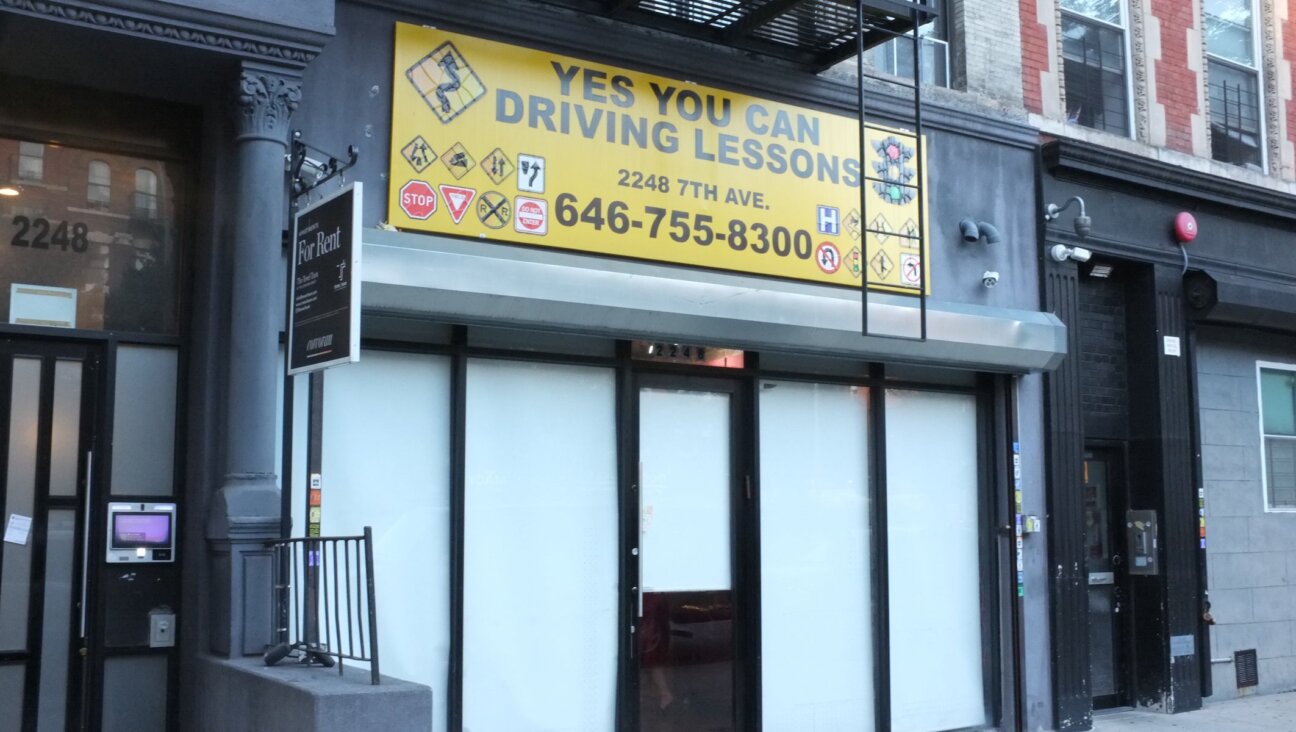When Blacks and Jews Joined Forces To Defeat The KKK

Graphic by Angelie Zaslavsky
“I hate ni—ers, Jews, Mexicans, spics, chinks, and anyone else that does not have pure white Aryan blood in their veins,” the African-American actor John David Washington (son of Denzel) barks into the telephone receiver, leaning back in his office chair during a key scene in Spike Lee’s “BlacKkKlansman,” which recently won the Grand Prix, second place award at the 71st Cannes Film Festival. It’s one of a few lines in the film that are taken verbatim from Ron Stallworth’s 2014 memoir, “Black Klansman: The True Story of How an African-American Police Officer Gained Membership Into David Duke’s Knights of the Ku Klux Klan.”
We’re in Colorado Springs at some point in the early 1970s and Ron Stallworth, a rookie detective with the local police force, is perhaps getting carried away with his own racist monologue, embellishing it with the sort of lurid details he feels his bigoted interlocutor, who’s recruiting him for Klan membership over the phone, wants to hear.
“My sister was recently involved with a ni—er and every time I think about him putting his filthy black hands on her pure white body, I get disgusted and sick to my stomach. I want to join the Klan so I can stop future abuse of the white race,” Stallworth continues as his police colleagues regard him with confusion and horror.
It has been nearly 30 years since Spike Lee took Cannes by storm with 1989’s “Do the Right Thing,” the hard-biting race drama that many still consider the director’s masterpiece. That film failed to win prizes from the Wim Wenders-led international jury (Steven Soderbergh’s “sex lies and videotape” won that year’s competition and apparently Lee still holds a grudge against Wenders).
Although the events depicted in “BlacKkKlansman” took place four decades ago, Lee’s finger is unerringly on the pulse of Donald Trump’s America. In Europe, the specter of racism is a frequent feature of the right-wing populism spreading like cancer over so much of the continent, and even spelling the death of liberal democracy in countries like Hungary and Poland. Appearing at the film’s press conference wearing his signature baseball hat, Lee refused to utter the president’s name, referring to him only as “Agent Orange” (a nickname coined by the rapper Busta Rhymes). Lee explained that filming on “BlacKkKlansman” had already wrapped when last August’s deadly Unite the Right rally in Charlottesville reminded ordinary citizens that white supremacy was alive and well in America, and even endorsed by the highest levels of government.
“That motherf—ker was given the chance to say we are about love, not hate,” Lee said in reference to Trump’s controversial comments about both sides bearing responsibility for the outbursts of violence. “And that motherf—ker did not denounce the motherf—king Klan, the alt-right, and those Nazi motherf—kers. It was a defining moment, and he could have said to the world, not just the United States, that we were better than that.”
Lee was one of two directors back at Cannes after a long absence with films announced as responses to the Trump Era. The other is Lars von Trier, the Danish auteur whose work is marked by disciplined, sadistic and aestheticizing tendencies. It seems difficult to imagine two filmmakers who are more different than Spike Lee and Lars von Trier, but here they are together at Cannes, returning to the Croisette with films they call artistic cris de coeurs against the current administration.
Von Trier has written that his serial killer epic “The House That Jack Built” “celebrates the idea that life is evil and soulless, which is sadly proven by the recent rise of the Homo trumpus — the rat king.” The mind-numbing film is a 150-minute-long orgy of gratuitous (largely misogynist) violence, recounted by a highly articulate (and seriously O.C.D) serial killer Jack (Matt Dillon in a surprisingly bone chilling performance). As he descends to hell, Jack engages his guide Virgil (Bruno Ganz, whose leathery voice is hypnotic) in a discussion of Nazi aesthetics and the role of art in evil. In one pretentious exchange, Jack compares the heaps of corpses at Buchenwald to “noble rot,” a valued type of fermentation essential for the production of the finest dessert wines.
In his screenplay, Von Trier, who hasn’t been back in Cannes since his bizarre pro-Hitler quips during a press conference made him “persona non grata” in 2011, seems to ally himself with Karlheinz Stockhausen, the great, eccentric German composer who courted controversy by calling the attack on the twin towers “the greatest work of art that exists for the whole Cosmos.” As with everything else in this whiny, repetitive film, it’s difficult to know whether we should be offended, disguised or just indifferent. And despite the Danish filmmaker’s statements, it is quite difficult to find any serious critique of Trumpism in this endurance test of a film.
“BlackKklansman” will be released stateside on August 10, which marks the one year anniversary of the Charlottesville protests, as well as the trial start date for James Fields Jr., who plowed his Dodge Challenger into a group of counter-protesters, killing 32-year old Heather Heyer. Lee’s film ends with footage of that atrocity, an urgent and earnest addition that the director included only after Heyer’s mother gave him permission to use the graphic material. For all its outrage, however, the choice seems miscalculated in the context of this sensitively shot period piece, where the dead-on evocation of the era is one of the film’s defining features. (Working with cinematographer Chayse Irvin, Lee shot on 35mm film for the first time in two decades).
Beyond the Trump-inspired outrage, the 61-year-old director, and his film, have another message. “Anybody who thinks the Klan just hates Black people and not Jews, you need to wake the f—k up. Jews are number two on the list,” he said in response to a question (posed by Roger Ebert’s widow, Chaz) about his decision to pepper the shooting script with so many racial slurs. “The way we had those people speak is the way they speak,” came Lee’s blunt reply.
The screenplay, co-authored by Lee, invents a Jewish sidekick for Ron, Flip Zimmerman (convincingly played by the non-Jewish actor Adam Driver), which helps to drive the point home. (In the book, a narcotics detective simply called Chuck poses as the “White Ron Stallworth” for face-to-face meetings with the Klan). The character of Flip is a secular Jew who has never thought of himself as anything but white until contact with the Klan makes him confront his heritage.
Aside from a clunky line or two (“I find myself wondering about rituals…”), Flip is a well-drawn character and Driver, one of today’s most interest actors, has great chemistry with Washington. It is also Flip, not Ron, who is at the center of one of the film’s most menacing scenes. While paying his first home visit to his new white supremacist friends, Flip finds himself alone with the local Klan chapter’s resident psycho, a loose canon named Felix (Jasper Pääkkönen) who waves a pistol at him and asks him to drop his pants and take a lie detector test to “prove” he’s not a Jew. When Felix tells Flip his theory about the Holocaust, it produces one the film’s most caustic exchanges. “8 million dead Jews? Never happened,” Felix protests. Adam Driver looks at him stony-faced and ripostes: “What the f—k are you talking about? Dude, the Holocaust happened. And it was f—king amazing!”
The film’s plea for Jews and Blacks to band together to combat white supremacy is a message shared the real Ron Stallworth. “If one Black man, aided by a bevy of good, decent, dedicated, open and liberal-minded Whites and Jews can succeed in prevailing over a group of White racists by making them look like the ignorant fools they truly were, then imagine what a nation of like-minded individuals could accomplish,” he writes in a preface to the book.
“BlacKkKlansman” has gone down well with Cannes’ notoriously fierce journalists (who have waged open war on several titles this year, including, rather satisfyingly, “The House That Jack Built”). Beyond that, the film’s release seems well timed, not only in light of Charlottesville, but also after films like “Get Out” and “Black Panther” have disproved the conventional wisdom that “black films” are niche-market fare incapable of making a killing at the box office.
If this seems like good news all around for the film, Lee still struck a defiant note at the press conference. “I don’t care what the critics say, or anybody else — we are on the right side of history with this film.”
A.J. Goldmann is Munich-based writer and a longtime contributor to The Forward.

















